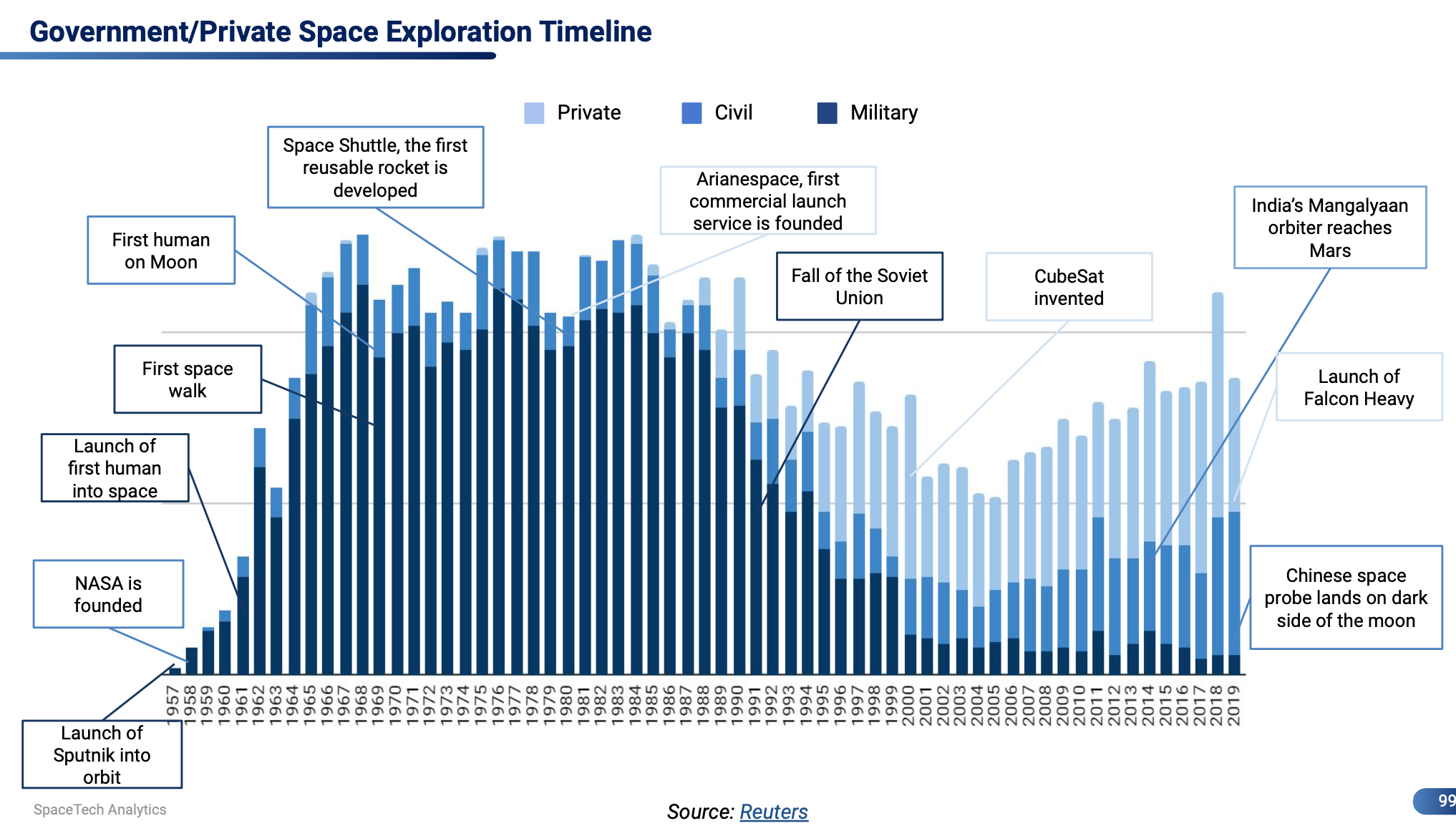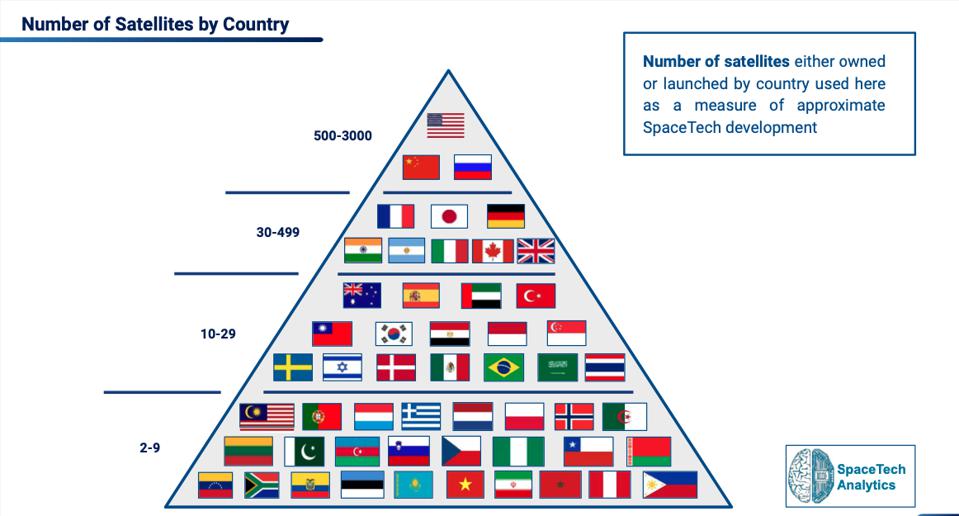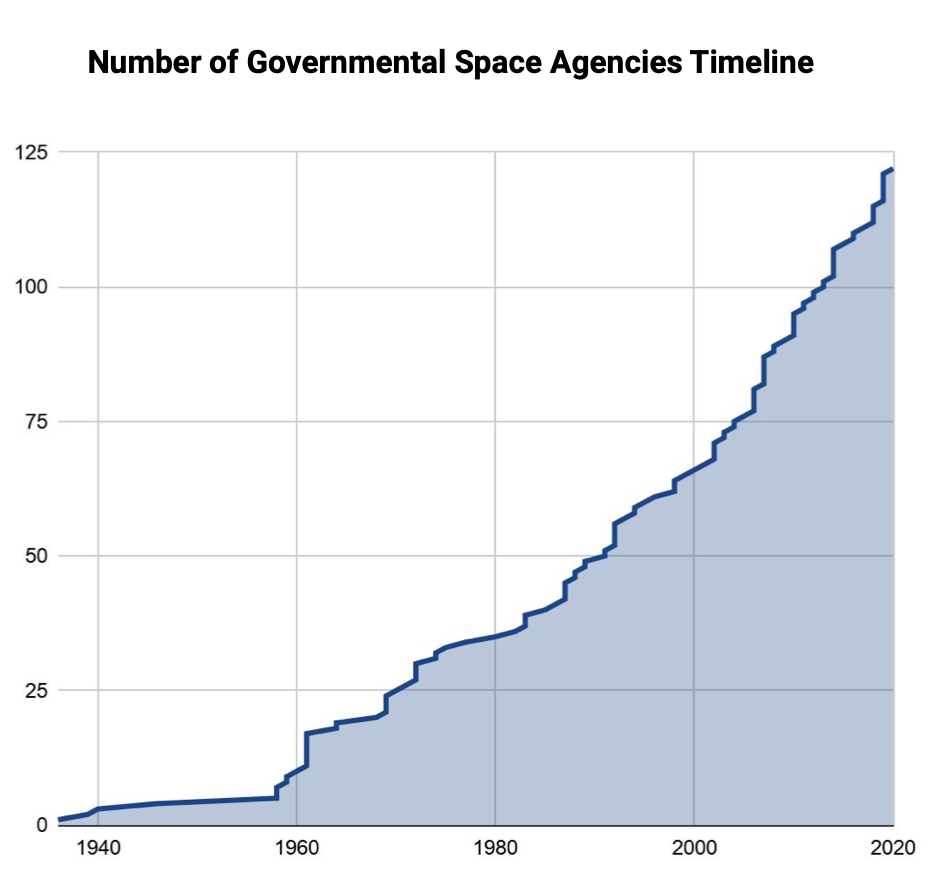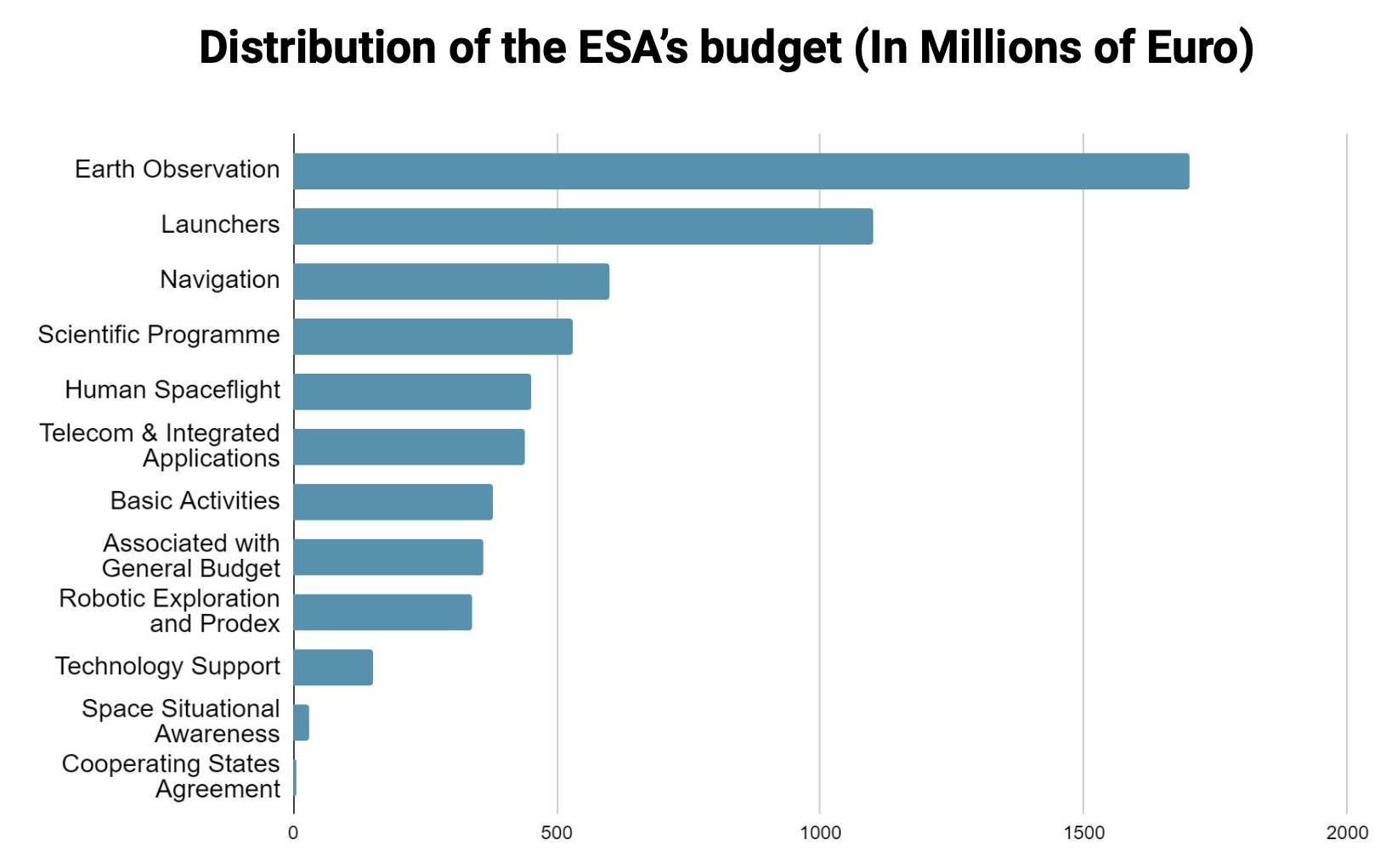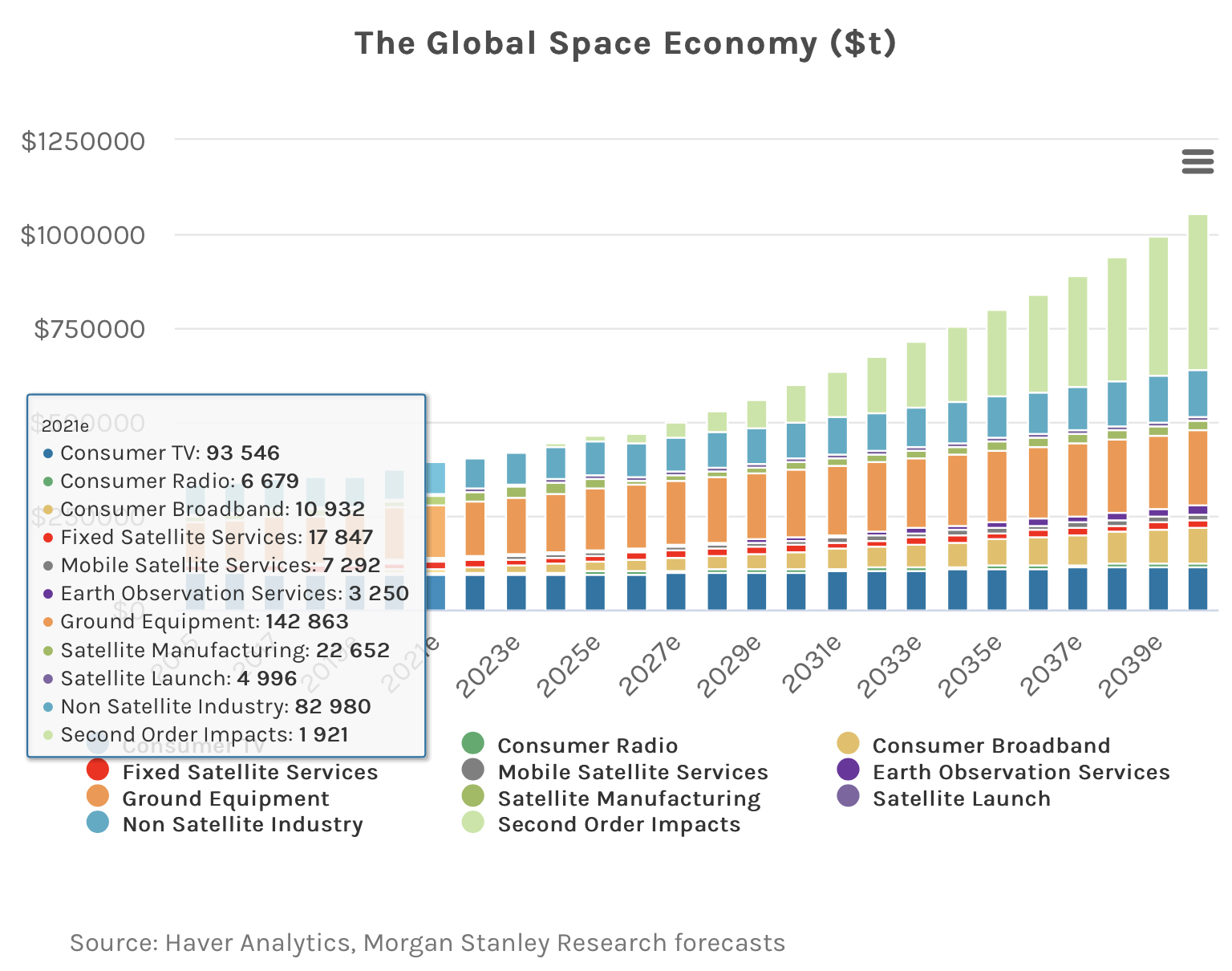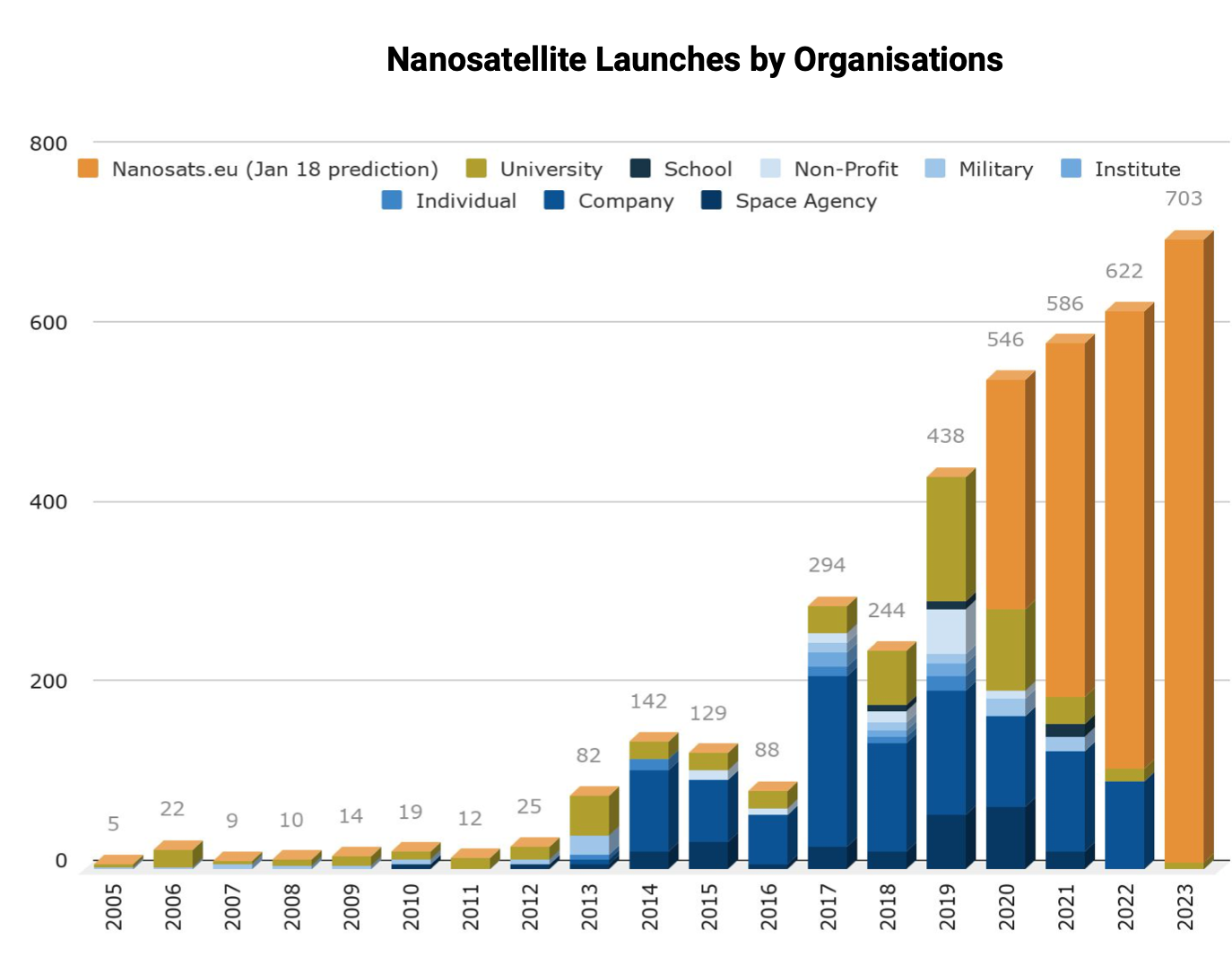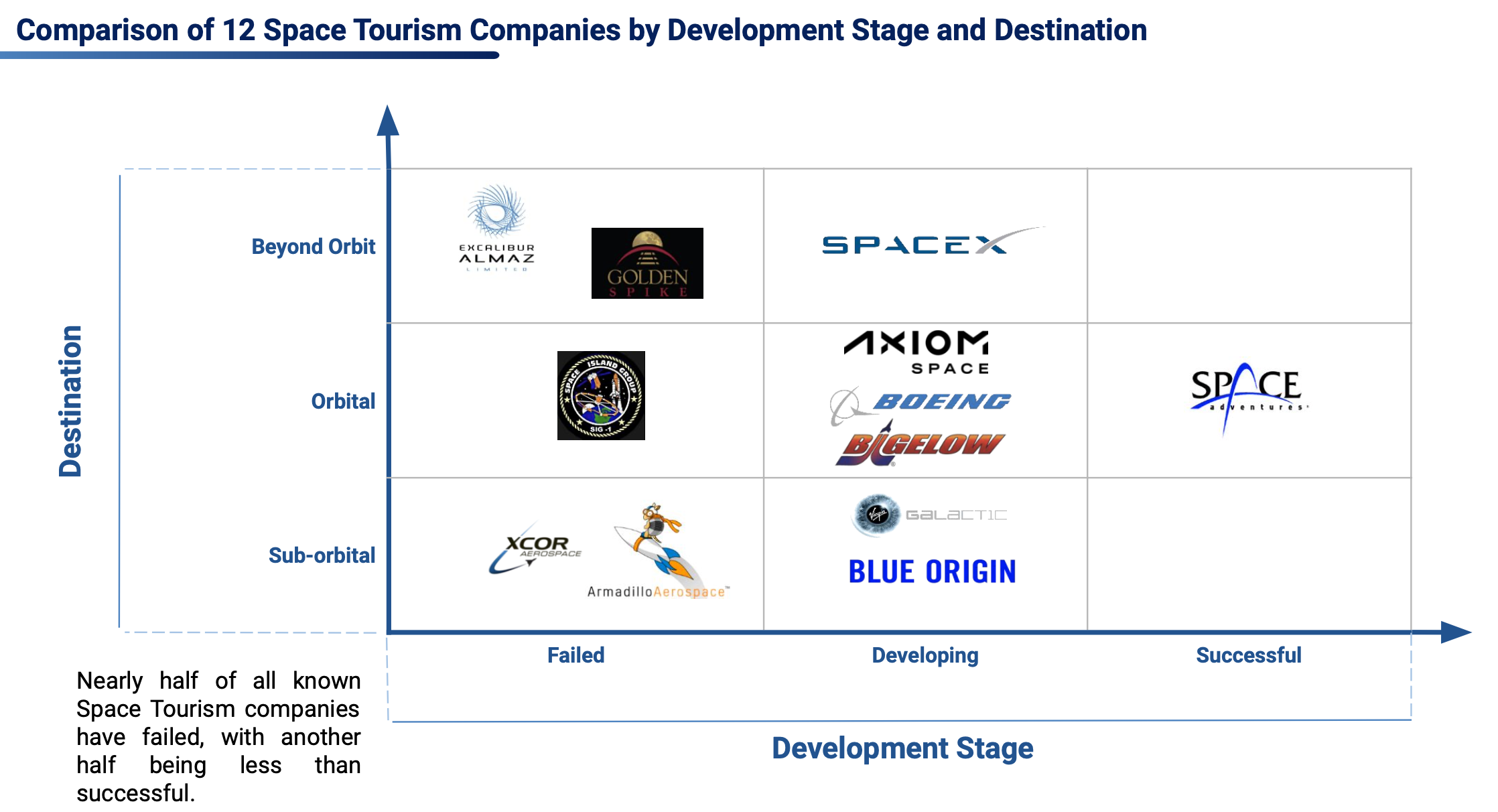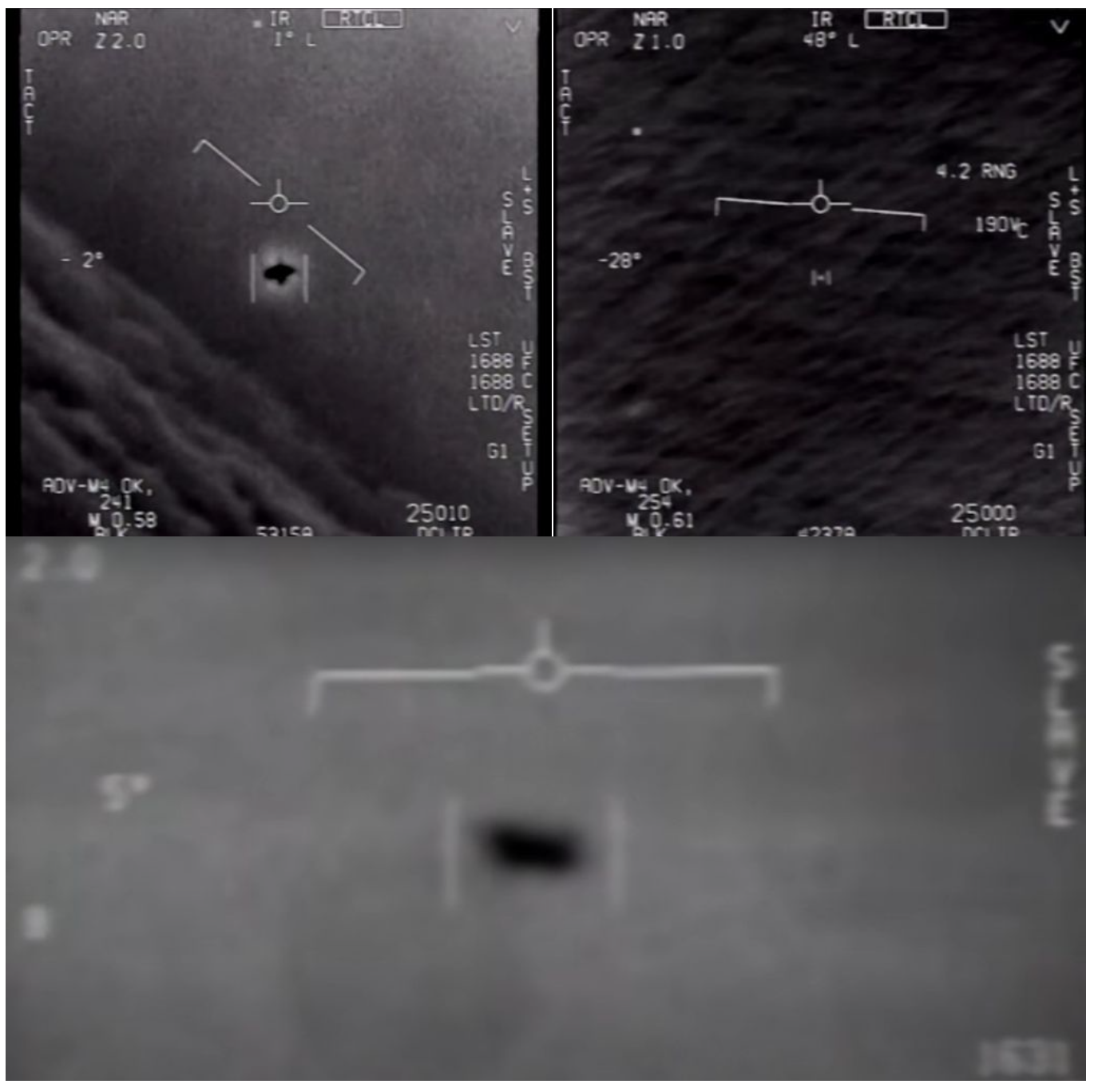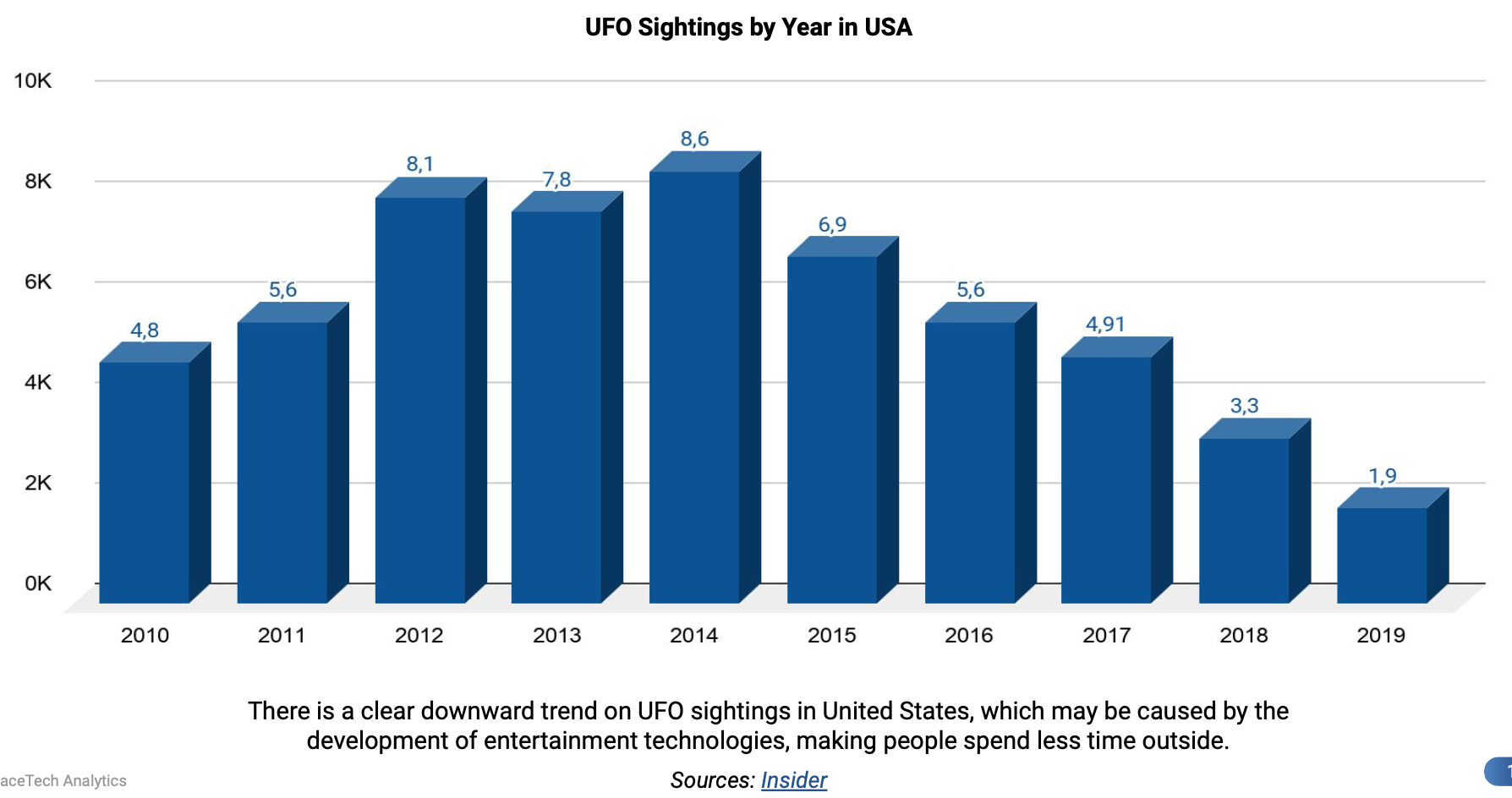it turns out that one of Dmitry Kaminsky's companies (Deep Knowledge) published a VERY cool report about the growing spacetech industry (they believe that in 10 years there will be an industry worth $ 10 trillion a year [Morgan Stanley believes that only $ 1 trillion]): from the state budgets and the share private launches and IPOs to legal collisions of colonization, UFOs and aging from radiation / low gravity, I am attaching my synopsis of 160 page presentation (all screenshots are at the end, after the text)
Why explore space?
with a probability of 1 / 50,000 times in 100 years, a meteorite with a diameter of more than 1 km can fall, which is likely to cause the collapse of civilization = existential risk
(from me: as written on the Founders Fund website about SpaceX: “Earth is a single-point failure for the humanity”)
with a probability of 1/100 times in 100 years - a meteorite up to 140 m - “only” will destroy the territory of a small country
metrics
over the past 20 years, the number of launches has grown from 50 units per year to 80 per year, and since the end of the 90s, the share of the military has collapsed in favor of private and civilian ones (oh, this is satellite TV, and then mobile communications =))
see the picture for how many satellites each of the countries has - only the RF-China-USA - thousands of units, another 7 countries (EU + India) hundreds of units, then only dozens of satellites per country
in space there are 17 thousand pieces of garbage the size of a tennis ball, 500 thousand objects less than 10 cm in size, and 5 thousand larger missiles / satellites or their pieces from the Russian Federation, the same amount from the United States, 3,700 pieces from China, 1,000 pieces from all other countries. the problem is that when debris collides, the number of debris rises sharply
state resources
150 R&D hubs and associations and 130 state agencies work for space - and the number of state agencies grew almost linearly from 1960 to 2020, apparently as the GDP of the countries of the world grew)
space state budget: US $ 40 billion / year, Russia 10x less, China $ 6 billion, Japan and France $ 3 each, Germany $ 2, UK and Italy $ 1 billion each
NASA has not repeated its 4% / year of the US federal budget since the lunar program, 0.5-1% maximum
select 6 industries (in no particular order)
1) research (astronomy, astrobiology, architecture, etc.)
2)
3) , + ,
4) tech stack (ML, robots, software) ( =)
5)
6) support (, HR, research & edu)
10 - 3 , 2.5 ?cloud? ( vmware nutanix - , - ), 1000 ( ), 700 , 800 , , 60
52% ( , 2500 ))), 4% , 6% UK, 3% China India
?? $100 ?? , $40 , $31 EU, $1
, $0.35 2020, 25- $0.5T, 2030 - $10 . , Morgan Stanley 2020-, 2030 $1 , $10
350 , $3 ( $1 FB + $2 Apple ))
$150 - Eli Lilly - . Danaher, . ?
IPO . , IPO Momentus ( 2017 , ) , , …
+ Boeing SpaceX
Planetary Resources, 2012 $50 , $ Consensys
2010 , - NASA
/, /…
, 1998 , , , $150 (!)
Artemis ( 500 ) (), ? ( ?)
NASA 2012 open source data , 2020 26 2300 150
, …
+ :
1967 ( , ), . , . + + , + ,
2019 (Anne McClain)
, , - ,
2017 ,
2015 ( + ),
+
22 , 6 - SpaceX Blue Origin + 4 , ) , ) , )
/ 70 55 , 1500
, (!), . GPS (--) . :
- , - - 1 10 , $0.5 . 5 15 $500 (!)
20 form factor “cube sat” ( - 1/3/6/12 ),
2021 spaceX 10 Starliink + 133 -
20 , ( timeline’). , (Virgin 5 )
Virgin $250 (), Crew Dragon spaceX - $55 1
2020 2017 ,
Oumuamua - , , . Avi Loeb, - , , ? -
- 2013 , /
SETI 2000 , Breakthrough Listen $100
space induced aging ( ), ( ),
- -
space colonization has a lot of problems (NASA summarized, see screenshot), but they are gradually being solved
